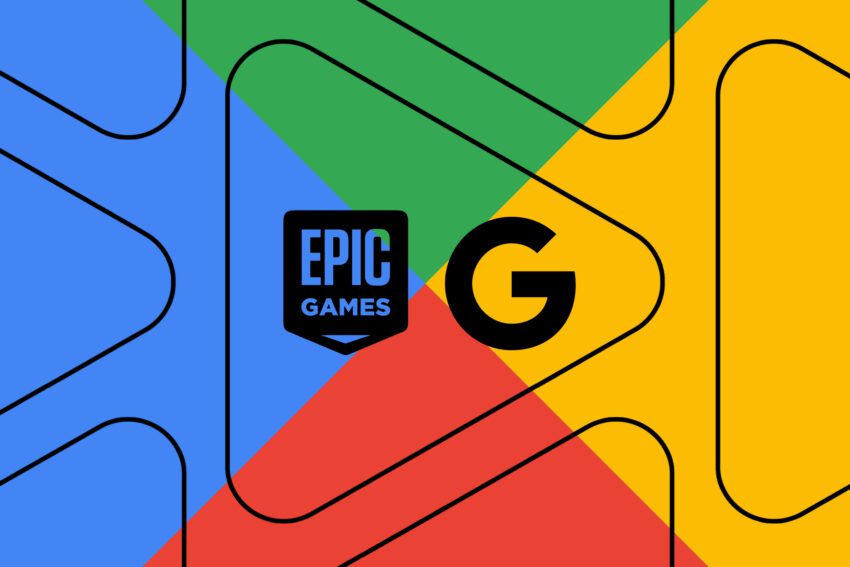
google s new deadline for epic consequences Google has successfully negotiated a one-week delay regarding the implementation of a significant court ruling that could reshape its app store policies.
google s new deadline for epic consequences
Background on the Epic v. Google Case
The ongoing legal battle between Epic Games and Google has garnered considerable attention, primarily due to its implications for app store policies and developer rights. Epic Games, the creator of the popular game Fortnite, has been at the forefront of advocating for changes in how app stores operate, particularly concerning payment systems. The company argues that developers should have the freedom to choose their payment processors and set their own prices, rather than being compelled to use a platform’s in-house billing system.
In 2021, Epic filed a lawsuit against Google, alleging anti-competitive practices related to its Google Play Store. The case has seen various rulings and appeals, with Epic achieving several victories that have challenged Google’s control over app distribution and payment processing. The most notable outcome was a permanent injunction issued by U.S. District Court Judge James Donato, which mandated changes to Google’s app store policies.
The October 22nd Deadline
Initially, October 22, 2025, was set as the deadline for Google to comply with the injunction’s provisions. These provisions included allowing developers to use alternative payment methods, setting their own prices, and ceasing the requirement for Google Play Billing. Epic’s CEO, Tim Sweeney, heralded this date as a pivotal moment for developers, stating that it would enable them to direct U.S. Google Play users to out-of-app payments without the associated fees and complications that have long been a point of contention.
However, as the deadline approached, both parties—Epic and Google—sought a delay. This unexpected request raised questions about the motivations behind the extension and the implications for developers and consumers alike.
The One-Week Delay
On October 20, 2025, Judge Donato agreed to extend the deadline to October 29, 2025. The order, which was brief and straightforward, stated:
ORDER. At the joint request of the parties, MDL Dkt. No. 1110, the upcoming October 22, 2025 deadline on which certain provisions of the Injunction, MDL Dkt No. 1017, in this case are scheduled to take effect is vacated and extended to October 29, 2025. Signed by Judge James Donato on 10/20/2025.
This extension allows Google additional time to prepare for compliance with the injunction, but it also raises questions about the strategic reasoning behind the delay. Neither party has publicly disclosed the rationale for this decision, leaving stakeholders and industry observers speculating about the implications.
Potential Reasons for the Delay
While the exact reasons for the delay remain unclear, several possibilities can be considered. One potential factor could be the ongoing appeal process. Google has indicated its intention to appeal the ruling to the Supreme Court, with plans to file by October 27, 2025. This appeal could significantly impact the enforcement of the injunction, making it prudent for both parties to seek additional time to navigate the complexities of the legal landscape.
Another possibility is that both companies are engaged in negotiations behind the scenes. The tech industry often thrives on collaboration and compromise, and it is conceivable that Epic and Google are exploring ways to reach a mutually beneficial agreement that could alter the landscape of app store policies without further litigation.
Implications for Developers and Consumers
The delay in implementing the injunction has significant implications for developers and consumers alike. For developers, the ability to choose their payment processors and set their own prices could lead to increased revenue and a more competitive marketplace. Currently, Google Play Billing takes a percentage of sales, which many developers argue is excessive and stifles innovation.
For consumers, the potential for alternative payment methods could enhance their purchasing experience. With more options available, users may benefit from lower prices and fewer restrictions when purchasing apps and in-app content. This shift could also foster a more diverse ecosystem of applications, as developers may feel empowered to create and distribute their products without the constraints imposed by traditional app store policies.
Reactions from Stakeholders
The reactions to the delay have been mixed among stakeholders. Developers who have been advocating for changes in app store policies may view the extension as a setback, as they were looking forward to the October 22 deadline as a turning point. Tim Sweeney’s previous statements underscored the anticipation surrounding this date, and the delay may dampen the momentum that Epic has built in its fight against Google’s practices.
On the other hand, some stakeholders may see the delay as an opportunity for further discussions and potential resolutions. The tech industry is known for its ability to adapt and evolve, and there is a possibility that both Epic and Google could find common ground that benefits all parties involved.
Looking Ahead: The October 29 Deadline
As the new deadline of October 29, 2025, approaches, the tech community will be closely monitoring developments. Google has previously stated its commitment to complying with legal obligations while it continues its appeal process. This commitment suggests that, barring any further delays or interventions from the Supreme Court, significant changes to Google’s app store policies could be on the horizon.
The outcome of this case could set a precedent for how app stores operate in the future, not only for Google but also for other platforms like Apple’s App Store. If Epic succeeds in its quest for more equitable app store practices, it could inspire similar movements among developers on other platforms, leading to a broader reevaluation of how digital marketplaces function.
The Supreme Court’s Role
The potential involvement of the Supreme Court adds another layer of complexity to the situation. If Google files its appeal by the October 27 deadline and the Supreme Court grants a stay, the enforcement of the injunction could be further delayed. This would prolong the uncertainty surrounding app store policies and developer rights, leaving many stakeholders in a state of limbo.
Legal experts and industry analysts will be watching closely to see how the Supreme Court responds to Google’s appeal. A ruling in favor of Google could reinforce its current practices and diminish the momentum gained by Epic, while a ruling in favor of Epic could pave the way for significant changes across the app store landscape.
Conclusion
The extension of the deadline for enforcing the injunction in the Epic v. Google case underscores the complexities of the ongoing legal battle and its implications for the tech industry. As both parties prepare for the new deadline of October 29, 2025, the potential for significant changes to app store policies looms large. Developers and consumers alike are left to navigate the uncertainty, awaiting the outcome of this pivotal case that could reshape the future of digital marketplaces.
Source: Original report
Was this helpful?
Last Modified: October 21, 2025 at 6:38 am
10 views















